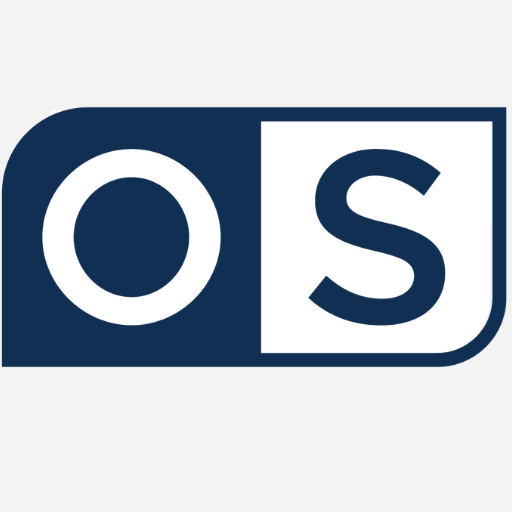Wandering Worker Consent Process
Steward: Cassandra Sturk & Meaghan Nowicki
*Do not schedule travel until your WWCP is completed*
At Raise, most of us are fully remote and have the ability to work anywhere with an internet connection. Every person is set up with their home address as their default work location – and this setup drives legal, tax, insurance and security components of your employment with Raise. Although you’re not required in a physical office every day, and you can technically work anywhere with an internet connection, you also have the responsibility to comply with these factors. Your default location is determined by the address on your employment agreement.
The purpose of this practice is to provide guidance for employees who want to travel while working, also known as ‘Wandering Workers’. Read this practice carefully to fully understand what information you’re required to gather and share, as well as who you should seek advice from to ensure you’ve met the requirements to travel and work, before you solidify your travel plans.
Please remember: Unless there is a business reason for you to work outside of your default work location, travel with intention of working is a personal choice, therefore the onus is on the ‘Wandering Worker’ to ensure it is done safely and legally.
If you’re considering moving or short-term travel to a country outside of your default work location, regardless of the length of time, you’ll need to consult an immigration lawyer.
Start your Loomio Proposal 1-2 months before your anticipated travel. Do not schedule travel until your WWCP is completed and has been consented to. If you’re not eligible to work remotely in the country you’re travelling to, and your stay exceeds 2 weeks, proceed with a regular WWCP to gather advice.
Step 1: Review and answer each question in detail.
- Select a Peer Mentor. Schedule a meeting with them after you’ve answered all questions in step 1.
- What country are you travelling to?
- How many days have you been outside your home country in the last 365 days? (Both Canada and the United States require you must be in your country of residence at least 185 days within a rolling calendar year)
- What is your planned travel date?
- When will you return home?
- If you need coverage for your role for part of your travels, who is your back up? Reference the WWCP questions and detail your plan:
- Do you require a visa to travel to or work remotely in the country of destination? (**If your visa or the country of destination does not explicitly state that you are able to remotely work from this country, please pause/stop your WWCP**)
- “No, a visa is not required, and I’m allowed to work remotely” – Please provide official evidence or documentation from the government website of your destination country.
- “Yes, a visa is required, but I’m eligible to work remotely on a visa” – Please share what visa you require and evidence/documentation from a government website from the country of your destination
*If a visa is required and the country of destination allows you to apply/obtain for the visa prior to booking travel, do so in advance of booking and share your documents with the HR & Compliance people invited to your proposal.
*If you’re unable to obtain a visa before travel is booked, and you’re waiting until your proposal reaches consent, please note consent would be conditional on your ability to produce the appropriate visa for your travels. If you choose to book travel prior to your proposal reaching consent, it’s recommended to purchase change/cancellation insurance, in the event your visa isn’t approved or your proposal doesn’t receive consent and you need to change your travel plans.’
Why is it so important for you to do your due diligence when Wandering and Working?
For example, when travelling to US or Canada…
- Visa Violation and Deportation: If authorities discover that a person is engaging in activities not allowed under their visa (such as working or receiving payment from a U.S. source on a B1 visa), this can lead to immediate deportation and potentially being barred from re-entry into the U.S. for a certain period or even permanently.
- Legal and Financial Penalties: Both the individual and the company involved can face legal actions and financial penalties. The U.S. government can impose fines and other sanctions on businesses that misuse visas to bring people into the country for unauthorized work.
- Visa Revocation: The individual’s visa can be revoked, and they may find it difficult to obtain a U.S. visa in the future. This could also impact the visa approval rates for the company involved.
- Damage to Reputation: The reputational damage for both the individual and their employer can be significant. Being caught in a visa violation can harm a company’s standing and its ability to sponsor future visas.
- Complications in Future Travel: Individuals found violating visa conditions might face increased scrutiny in future travels, not only to the U.S. but also to other countries that share visa infraction data with U.S. authorities.
8. Health Benefits: Confirm that the duration of travel does not impact your Health Insurance (i.e., company health insurance plans or provincial health care)
9. Travel Insurance:

10. Tax Implications:

11. Workers Compensation (Canada & US Employees): Request Compliance to confirm WC coverage while traveling to country of destination.
Step 2: Create your Loomio:
Your Loomio post should also include all relevant information and answers from Step1 as well as acknowledgement of the following:
- My employment remains subject to (insert home country) law.
- I do not acquire rights under (insert country of destination) employment law.
- This short-term remote work arrangement is a personal request, and I agree to ensure compliance with any local laws, taxes, or obligations while working remotely.
- All costs incurred are my responsibility (i.e. internet, phone etc, travel or work visa’s etc)
- All research & investigation is my responsibility, the ‘Wandering Worker’ (if not done correctly it can affect our business i.e., visa programs or eligibility)
* Include written advice/documentation from an immigration lawyer or local government authority if you’re moving to a country outside your default location that you can work remotely from that country through a foreign employer
* Outline your Loomio Proposal timeline with something like: “I hope to speak with or gather advice from all my advisors by XYZ date, make a proposal on XYZ, wrapping up my decision by XYZ”
Step 3: Invite the relevant advisors:
Once you’ve completed all your research and have created your Loomio post, in addition to any relevant team members, including anyone providing coverage for your role, please invite someone from the following teams:
- IT – Discuss with our IT teams your working situation and country of destination, include IT team in WWCP (email helpdesk@raiserecruiting.com)
- Payroll & Benefits – Ask a member of the finance team to advise on your WWCP (email corporate.payroll@raiserecruiting.com)
- Compliance – Ask a member of the Compliance team to advise on your WWCP (email compliance@raiserecruiting.com to request assistance)
- HR – Ask a member of the HR team to advise on your WWCP (if travelling internationally, please include one Offshore and one North American HR member to advise on your WWCP.
After completing Step 1, consulting your advisors, and demonstrating your ability to meet all outlined requirements, you can proceed to draft your proposal and formally request consent. Ensure your proposal is clear, addresses any concerns, and highlights your readiness to move forward. Once consent is granted, finalize your plans by booking travel and making the necessary arrangements.

